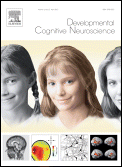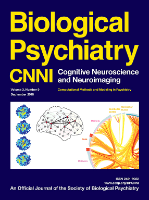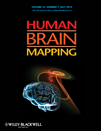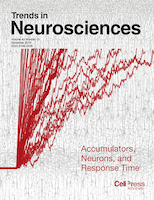
BRAIN AND COGNITION
Scope & Guideline
Pioneering Research in Cognitive Processes
Introduction
Aims and Scopes
- Cognitive Neuroscience:
The journal emphasizes empirical studies that explore the neural mechanisms underlying cognitive functions such as memory, attention, perception, and decision-making, often utilizing advanced neuroimaging and electrophysiological techniques. - Neuropsychology:
Research that examines the impact of brain lesions and neurological disorders on cognitive abilities, providing insights into how specific brain regions contribute to cognitive functions. - Developmental and Aging Studies:
The journal publishes studies investigating cognitive development across the lifespan, including the effects of aging on cognitive processes and the implications of early life experiences on later cognitive abilities. - Interdisciplinary Approaches:
It encourages research that merges cognitive psychology with neuroscience, including studies on the effects of physical activity, music, and environmental factors on cognitive performance. - Clinical Applications:
The journal features research aimed at understanding cognitive impairments in clinical populations and developing interventions, such as transcranial stimulation techniques and cognitive rehabilitation strategies.
Trending and Emerging
- Neuroimaging and Electrophysiology:
There is an increasing emphasis on integrating neuroimaging and electrophysiological methods (e.g., fMRI, EEG) to investigate cognitive processes, revealing intricate neural correlates of cognitive functions. - Impact of Physical Activity on Cognition:
Recent studies are focusing on how different forms of physical activity, including aerobic exercise, influence cognitive performance and underlying neural mechanisms, highlighting the importance of lifestyle factors in cognitive health. - Cognitive Rehabilitation and Intervention Strategies:
Emerging themes regarding the efficacy of cognitive interventions, such as transcranial direct current stimulation (tDCS) and cognitive training programs, are gaining prominence as researchers seek to develop evidence-based therapeutic approaches. - Social and Emotional Cognition:
There is a growing interest in understanding the neural bases of social cognition and emotional processes, particularly in relation to mental health conditions, reflecting an interdisciplinary approach that bridges neuroscience and psychology. - Child and Adolescent Cognitive Development:
Research focusing on cognitive processes in children and adolescents is trending, particularly studies examining the effects of early experiences and environmental factors on cognitive trajectories.
Declining or Waning
- Traditional Neuropsychological Assessments:
Research centered solely on classical neuropsychological tests is becoming less frequent as newer methodologies, such as neuroimaging and electrophysiological measures, gain traction and provide deeper insights into cognitive functions. - Static Models of Cognition:
There is a noticeable shift away from static models of cognitive processes towards dynamic and integrative models that account for the complexity of cognitive functions in real-world contexts. - Simple Behavioral Studies:
Papers focusing solely on basic behavioral experiments without neurobiological correlates are appearing less frequently, reflecting a trend towards studies that incorporate neurophysiological data.
Similar Journals

JOURNAL OF COGNITIVE NEUROSCIENCE
Bridging neuroscience and cognition with groundbreaking research.Welcome to the JOURNAL OF COGNITIVE NEUROSCIENCE, a premier publication in the field of cognitive neuroscience, published by the esteemed MIT PRESS. Since its inception in 1989, this journal has been at the forefront of advancing our understanding of the neural mechanisms underlying cognitive processes, boasting an impressive convergence period through 2024. With its Q1 ranking in the 2023 cognitive neuroscience category, it stands out among 115 peers, indicating its critical role in shaping contemporary research. The journal offers a comprehensive array of research articles, reviews, and methodologies aimed at researchers, professionals, and students alike, facilitating the exploration of complex cognitive functions. While not an open-access journal, it provides essential insights and significant contributions to the neuroscience community, making it an invaluable resource for anyone keen on delving into the intricacies of the human brain.

Cognitive Neurodynamics
Fostering Dialogue in Cognitive Research.Cognitive Neurodynamics is a leading journal in the field of cognitive neuroscience, published by Springer in the Netherlands. With an ISSN of 1871-4080 and an E-ISSN of 1871-4099, this journal has established itself as a prominent platform for innovative research from its inception in 2007, continuing to enrich the academic landscape through 2024. Recognized for its significant contributions, Cognitive Neurodynamics holds a Q2 quartile ranking in cognitive neuroscience and impressively ranks #27 out of 115 in the Scopus database, placing it in the 76th percentile among its peers. While the journal is not open access, it offers a wealth of studies focusing on the intricate dynamics of cognitive processes and neurobiological mechanisms, making it essential reading for researchers, professionals, and students alike. Its objective is to bridge the gap between theoretical insights and practical applications, fostering a deeper understanding of cognition through multidisciplinary approaches. Explore the latest advancements in cognitive dynamics and contribute to the evolving dialogue within this fascinating field.

Behavioral and Brain Functions
Unlocking the Mysteries of the Human MindBehavioral and Brain Functions is a leading Open Access journal published by BMC, dedicated to advancing the field of behavioral neuroscience, cognitive neuroscience, and biological psychiatry since its inception in 2005. This esteemed journal, based in the United Kingdom, has established itself as a vital resource for researchers and professionals, boasting a remarkable influence demonstrated by its Q1 and Q2 rankings across multiple relevant categories. With its commitment to providing unrestricted access to high-quality research, the journal facilitates the dissemination of significant findings in understanding the complex interactions between behavior and brain function. The journal ranks impressively within the Scopus database, positioning itself among the top-tier publications in its categories, making it an essential platform for academic discourse and innovation. As it converges through 2024, Behavioral and Brain Functions continues to play a crucial role in shaping the forefront of neuroscientific inquiry, inviting contributions that challenge our understanding and promote further exploration in these dynamic fields.

Journal of Cognitive Enhancement
Fostering Collaboration for Enhanced Mental Health Insights.Journal of Cognitive Enhancement, published by SpringerNature, is a premier academic platform dedicated to advancing knowledge in the fields of Cognitive Neuroscience, Behavioral Neuroscience, and Experimental Psychology. With an electric combination of rigorous research and innovative practice, this journal has established itself as an essential resource for researchers, professionals, and students interested in understanding the mechanisms behind cognitive enhancement and its implications for mental health and cognitive function. As of 2023, it is recognized in the Q2 and Q3 quartiles across several categories, demonstrating its solid impact in the academic community, particularly with an impressive Scopus ranking of #27/76 in Neuropsychology and Physiological Psychology. Operating in a competitive landscape, the Journal of Cognitive Enhancement fosters open dialogue and collaboration through valuable contributions to cognitive research, facilitating insights that are crucial for practical applications in clinical and educational settings. While specific open access options are currently not defined, we encourage all interested scholars to explore the rich database of published works dating from 2017 to 2024, contributing to this dynamic field of study.

Developmental Cognitive Neuroscience
Unveiling the mysteries of cognitive growth and brain function.Developmental Cognitive Neuroscience is a leading interdisciplinary journal published by ELSEVIER SCI LTD, dedicated to advancing the field of cognitive neuroscience with a specific focus on the developmental aspects of brain function and behavior. Since its inception in 2011, this Open Access journal has continued to thrive, gaining significant recognition with a remarkable impact factor that places it in the Q1 category of cognitive neuroscience, ranking 22nd out of 115 in Scopus. This enhances its visibility and accessibility to a global audience, including researchers, clinicians, and students keen on exploring the intricate relationship between cognitive development and neurological processes. The journal embraces a wide array of topics, from the impact of early life experiences on cognitive outcomes to neurodevelopmental disorders, fostering an enriching platform for disseminating high-quality research and innovative findings. As it progresses towards 2024, Developmental Cognitive Neuroscience remains pivotal in shaping future research and understanding in the field.

Biological Psychiatry-Cognitive Neuroscience and Neuroimaging
Pioneering Discoveries in Neuroimaging and PsychiatryBiological Psychiatry-Cognitive Neuroscience and Neuroimaging is a leading interdisciplinary journal published by Elsevier, focusing on the convergence of biological psychiatry, cognitive neuroscience, and advanced neuroimaging techniques. With its prestigious Q1 rankings across essential categories such as Biological Psychiatry, Cognitive Neuroscience, and Neurology (clinical), this journal is at the forefront of research that examines the complexities of mental health through innovative methodologies. Covering a broad spectrum of topics from neurobiological mechanisms to clinical applications, it aims to provide a platform for scholars and practitioners to exchange insights on mental disorders and their neurobiological underpinnings. The impact factor and Scopus rankings further underscore its importance, with rankings highlighting its position in the top percentiles of related disciplines. By fostering an open exchange of ideas and promoting cutting-edge research, this journal is an essential resource for researchers, professionals, and students dedicated to advancements in the understanding and treatment of psychiatric and neurological conditions.

HUMAN BRAIN MAPPING
Elevating insights into brain mapping methodologies.HUMAN BRAIN MAPPING, published by Wiley, is a premier journal in the field of neuroscience, devoted to comprehensively advancing understanding of brain structure and function through innovative mapping techniques. With an impressive impact factor and ranked in the Q1 category across multiple relevant disciplines—including Anatomy, Neurology, and Radiology—this journal is recognized as a vital resource for researchers and professionals passionate about the complexities of the human brain. Founded in 1993 and continuously publishing groundbreaking research, HUMAN BRAIN MAPPING is essential for those looking to stay at the forefront of developments in anatomical and neurological research. Though it does not currently offer Open Access options, the journal remains committed to disseminating high-quality research that influences clinical practices and academic inquiry. Its esteemed position within Scopus highlights its significance; charting at the top percentiles across various medical and health fields serves as a testament to the critical contributions made by the authors and researchers involved. As it converges toward 2024, HUMAN BRAIN MAPPING continues to be the go-to platform for publishing pivotal insights into the intricacies of brain mapping methodologies and applications.

TRENDS IN NEUROSCIENCES
Elevating Standards in Neuroscience ScholarshipTRENDS IN NEUROSCIENCES, published by CELL PRESS, is a leading journal in the field of neuroscience, offering cutting-edge insights and important developments in the rapidly evolving landscape of brain research. With an impressive Impact Factor and ranking in the top quartile (Q1) of the category for Neuroscience (miscellaneous), it is positioned as a vital resource for researchers and professionals seeking to stay abreast of the latest discoveries and trends from 1978 to the present. Specifically ranked #3 out of 113 in General Neuroscience by Scopus, this journal promotes the interdisciplinary exchange of ideas and knowledge, making it an essential platform for students and experienced scholars alike. Although it is not an Open Access journal, its value lies in its rigorous peer-review process and commitment to maintaining the highest standards of academic integrity. By continuing to explore the complexities of neural processes and behavior, TRENDS IN NEUROSCIENCES plays a crucial role in shaping the future of neuroscience research and education.

Cognitive Processing
Advancing the frontiers of cognitive science.Cognitive Processing, published by SPRINGER HEIDELBERG in Germany, is a leading journal dedicated to advancing the understanding of cognitive processes through interdisciplinary research. With its ISSN 1612-4782 and E-ISSN 1612-4790, the journal covers a diverse range of fields including Artificial Intelligence, Cognitive Neuroscience, and Experimental and Cognitive Psychology, making it an invaluable resource for researchers and professionals alike. While it currently does not operate under an Open Access model, it is well-regarded within the academic community, holding a respectable impact factor and ranking in the Q2 and Q3 quartiles as of 2023. The journal aims to foster innovation and collaboration among scholars, presenting high-quality original research, reviews, and theoretical discussions that bridge the gap between cognitive science and its practical implications. With a convergence of research from 2005 to 2024, Cognitive Processing continues to play a critical role in the evolving landscape of cognitive science literature.

Aging Brain is a premier Open Access journal published by Elsevier, dedicated to advancing the understanding of the neurobiological changes associated with aging. Since its commencement in 2021, this journal has been pivotal in disseminating high-quality research that explores the intricate relationships between aging and cognitive functions, neurological disorders, and overall brain health. With a notable commitment to open accessibility, Aging Brain ensures that vital findings are available to a global audience, fostering collaboration and innovation in the field. Researchers, healthcare professionals, and students alike will find a rich repository of cutting-edge studies, reviews, and insights aimed at addressing the complexities of the aging brain. The journal stands as an influential platform for those passionate about enhancing the quality of life for the aging population, making it a valuable resource in gerontology and neuroscience.